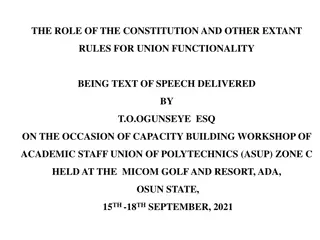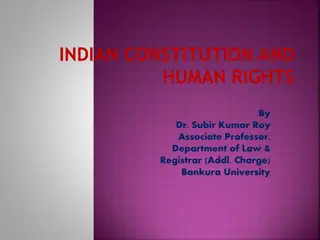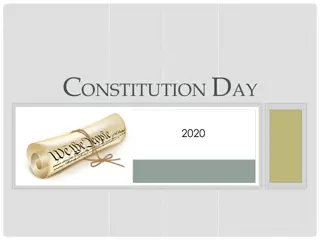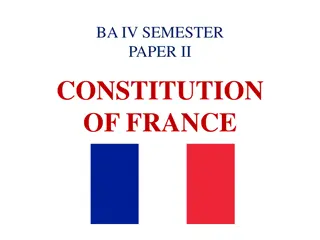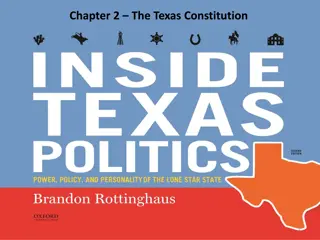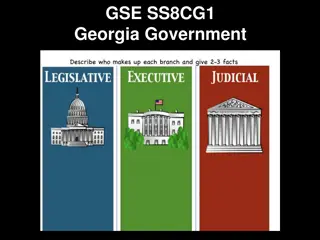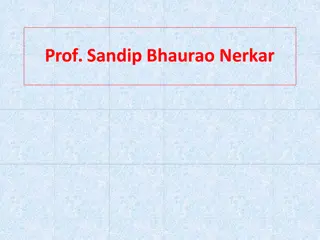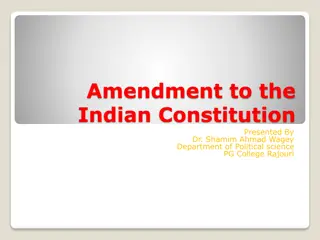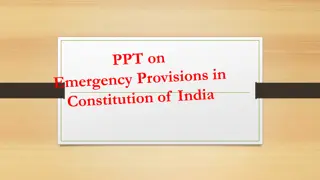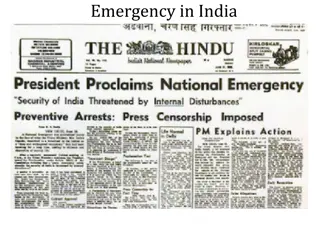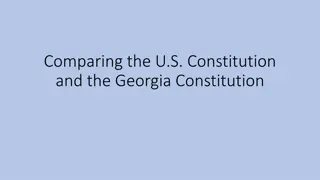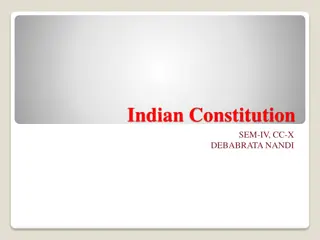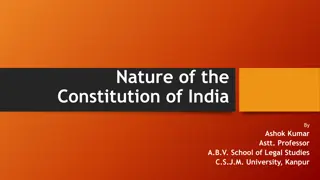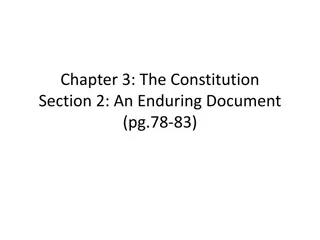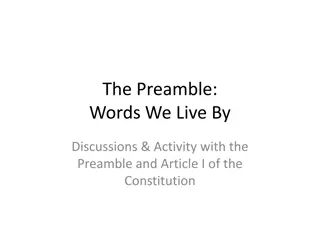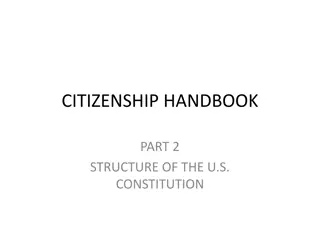Understanding Article 261 of the Indian Constitution
Article 261 of the Indian Constitution addresses public acts, records, and judicial proceedings, emphasizing the federal nature of India's governance structure. It delineates the powers and relationships between the central and state governments through legislative, administrative, and financial dimensions, ensuring the legitimacy and execution of public documents and court decisions throughout India.
Download Presentation

Please find below an Image/Link to download the presentation.
The content on the website is provided AS IS for your information and personal use only. It may not be sold, licensed, or shared on other websites without obtaining consent from the author. Download presentation by click this link. If you encounter any issues during the download, it is possible that the publisher has removed the file from their server.
E N D
Presentation Transcript
Introduction Article 261 of the Indian Constitution covers Public acts, records, and judicial proceedings. Public Acts means an act or a statute affecting matters of public concern. Of such statutes, the courts take judicial notice. Here we will discuss Public Acts, Records, and Judicial Proceedings (Article 261) Clause Samiuddin, Full Faith and Credit
Article 261- Public Acts, Records and Judicial Proceedings India is a Union of states. The legislative, executive and financial powers are shared between the centre and the states, giving the constitution a federal character, while the judiciary is organized in a hierarchical framework. Clause Samiuddin, Full Faith and Credit The relationship between the centre and the state is separated into three sections, as follows: Legislative Relations (Articles 245 to 255) Administrative Relations (Articles 256 to 263) Financial Relations (Articles 268 to 293)
Articles 260 and 261 of the Constitution of India specify the Union's jurisdiction over territories outside India, as well as public acts, records, and judicial proceedings. Article 261 has three clauses which state: Article 261(1): Full faith and credit shall be given throughout the territory of India to public acts, records, and judicial proceedings of the Union and of every State. Article 261(2): The manner in which and the conditions under which the acts, records, and proceedings referred to in clause (1) shall be proved and the effect thereof determined shall be as provided by law made by Parliament. Article 261(3): Final judgments or orders delivered or passed by civil courts in any part of the territory of India shall be capable of execution anywhere within that territory according to law. Clause Samiuddin, Full Faith and Credit
Constituent Assembly Debate on Draft Article 238 On June 13, 1949, the first debate on Draft Article 238 (Article 261, Constitution of India 1950) took place. It was concerned with the legality of government actions, documents, and court procedures. It gave Union and State public acts, records, and judicial proceedings legitimacy. The legislation would decide the value of these recordings as evidence. Two modifications were offered by the Chairman of the Drafting Committee. i. The first permitted the value of the documents to be determined solely by Union law. ii. The second recommended that the terms of the Draft Article apply to princely states as well. The suggested adjustments were unanimously approved. The 13th of June 1949 saw the adoption of Draft Article 238 as revised. Clause Samiuddin, Full Faith and Credit
Conclusion The relationship between the Centre and the States lies at the heart of India's federalism. The central government and state governments work together to ensure the safety and well-being of Indian citizens in which Article 261 holds a key position. Clause Samiuddin, Full Faith and Credit Courtesy: https://prepp.in/news/e-492-public-acts-records-and- judicial-proceedings-article-261-indian-polity-notes




